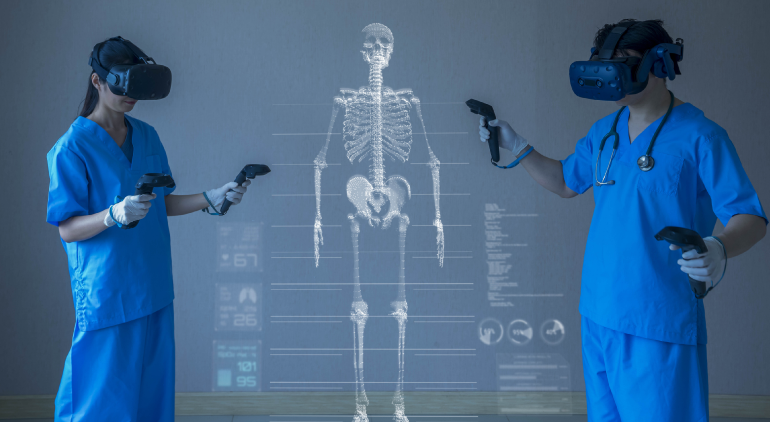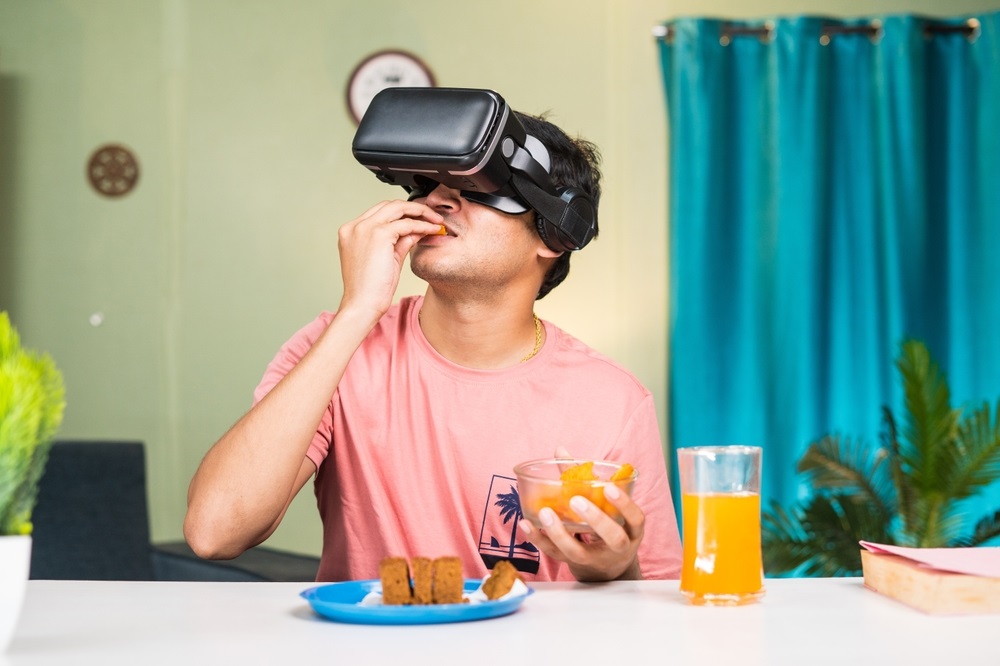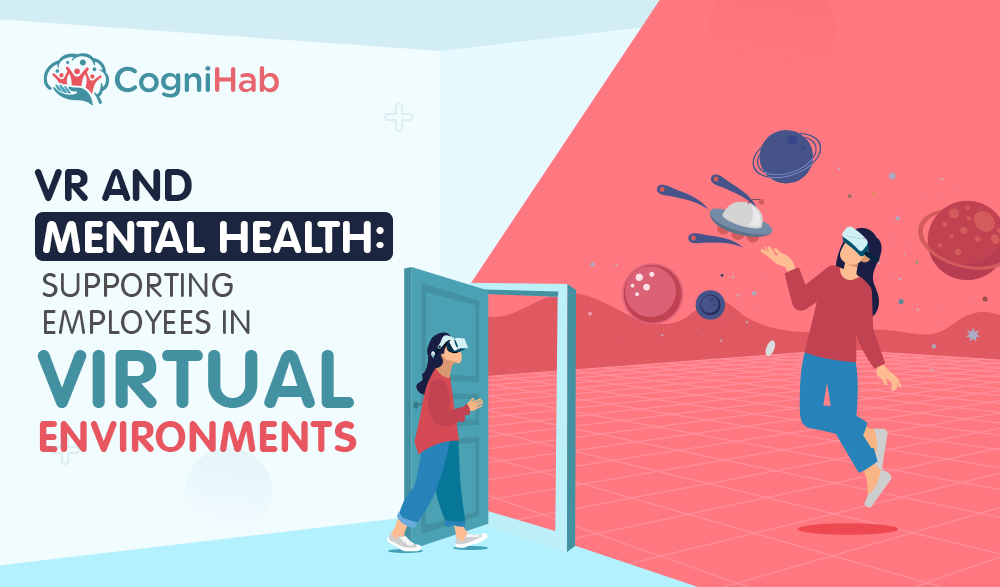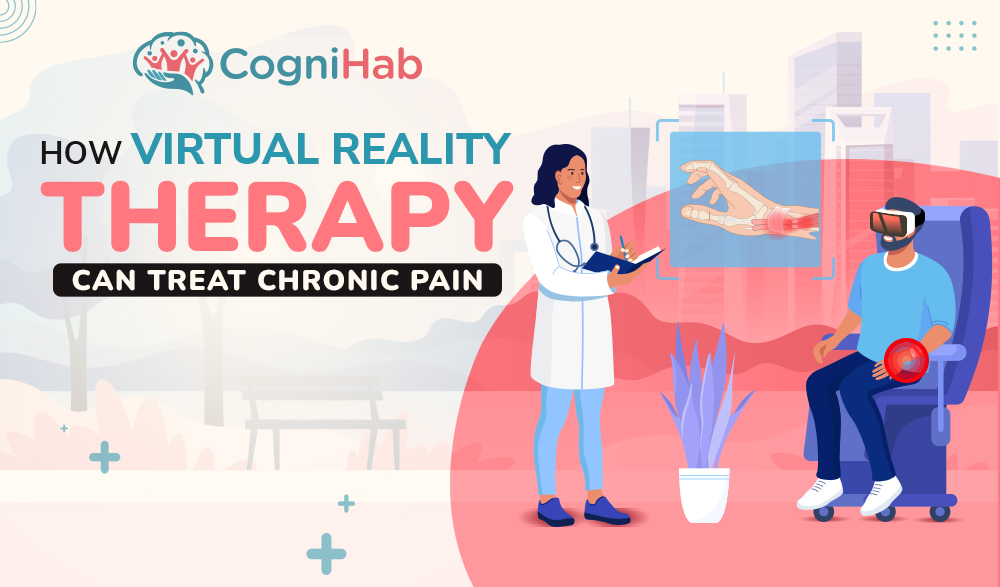Virtual Reality Medical Applications That Have Taken Over Healthcare by Storm
The world is being transformed by virtual reality into a new immersive and practical in real. There is no denying that VR is reaching new heights regularly.
You may find numerous examples of how VR has benefited various industries. Virtual reality has emerged as a crucial tool for the gaming business, while it also offers significant benefits to many other sectors, including real estate, travel, and tourism.
In addition, Virtual reality in healthcare medical applications is revolutionizing healthcare through its use.
VR has the power to immerse you in a new universe and act as a catalyst for altering social standards that were a part of yesterday's trends.
Today, VR has developed into a technology field that benefits patients and the medical community in many ways. Because it intruded into the medical sector, the medical system is now seen differently around the world. This blog will discuss several VR applications that are improving healthcare.
Tackling Memory Loss
Without our memories, each of us would be lost in time and cut off from others, according to neuroscientist Dr. Nanthia Suthana, UCLA. To reveal what transpires inside the brain when we create memories, they combined VR with a surgically implanted prosthesis. Electrical activity was recorded during the learning portion of this study. The study focused on those who experience memory loss of any kind. They were instructed to locate the memory path by following the light.
The research determined how we create memories every day. According to Dr. Suthana, finding solutions for many brain-related issues will be simple once we understand the impact that various memories have on our brains. It can also protect the mind from memory loss.
Answer to Autism
Autism is a spectrum disorder, so each person's abilities and difficulties differ.
Autism spectrum disorder affects the nervous system and negatively affects a person's overall cognitive, emotional, social, and physical health. The extent and seriousness of side effects can vary greatly.
Consultation with a doctor is part of autism therapy. But repeatedly going through sessions can eventually traumatize the patient. Therefore, VR technology can limit the number of sessions through social interactions in the virtual world. With the help of smart wearables, it is easier to hold patients while they retrain their life skills painlessly. The stress-free procedure has allowed them to resume living independently.
Virtual reality is advantageous for autistic people because it helps them feel more comfortable in strange situations. Virtual reality also makes it possible to conduct imaging experiments that would not be possible otherwise.
Drug Addiction Treatment
New virtual reality software was tested with assistance from a rehabilitation facility. In order to receive therapeutic support and "practise" their responses in a variety of situations involving alcohol and drugs, participants can use the system to immerse themselves in different contexts.
VR has been shown to help anxious patients calm down when they enter a rehab facility. Additionally, rehab centers may employ exposure therapy. A VR environment that simulates a safe space and a virtual therapist is accessible to people in need. You could also use it to connect with a support network that's far away via a more sensory-rich version of Facetime.
Chronic Pain Management
Virtual reality therapy offers benefits beyond simple entertainment. Because the patient is fully submerged in an enjoyable, relaxing, and interactive environment, there is no room for pain. The outcomes of using virtual reality as a component of one of the pioneers in the field's pain management program are impressive. According to some studies, multisensory experiences have been shown to reduce self-reported pain scores by as much as 50%. This is one of the things that is advancing VR medical research.
Mental Health Treatment
Most mentally ill people avoid talking about their problems. They frequently disregard the need for a therapist because doing so might cause anxiety and paranoia. Avoidance can cause their symptoms to deteriorate and last longer. They can confront and conquer their fears with the aid of virtual reality exposure therapy. These VR therapies create individualized treatment plans based on each patient's particular needs.
When compared to oral medications that are used to treat anxiety related to traumatic events, this is more effective and safe. VR can help patients safely deal with their triggers.
Reduce Training Cost
Accurate medical data visualization significantly reduces patient risk and speeds up diagnostics by 40% compared to traditional methods. Medical students can perfect their diagnosis, treatment, modeling, and training techniques in a controlled environment by using VR. Additionally, the learning curve was shortened. Mock surgeries don't involve actual patients, so any errors made by the surgeon don't result in emergencies that could be fatal. They consequently feel more confident in urgent situations.
Remote Treatment
Thanks to the fusion of high-speed networks and VR, seeing a doctor has never been easier. The consultation can take place in a virtual setting without having to leave the comfort of one's home. Patients and doctors no longer have to choose between a variety of treatments because there are fewer medical professionals with super specialty experience than there were in the early part of the twenty-first century. Due to virtual reality's dominance, the market has grown to include a variety of smart wearable devices. Diagnoses can be made by VR-powered machines before the patient even sees a doctor, and it won't be long before surgical interventions are simulated using VR to reduce the distance in remote surgery.
Summing Up
Virtual reality in medical applications is a vast subject and is still under research to identify true potential. It makes the effective diagnosis, instruction, training, and treatment of complex diseases possible. Without the need for invasive or chemical procedures, it offers a secure environment for collaboration and communication between patients and medical staff. A clever treatment is available now that the trial and error method has been abandoned. The future of VR solutions for healthcare is virtual reality, and it's almost at our fingertips.







